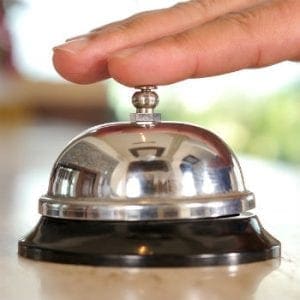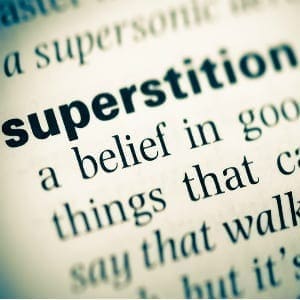 Professional hotel owners define and continually refine their brand to convey their brand values, the essence of their brand identity, and their brand deliverables.
Professional hotel owners define and continually refine their brand to convey their brand values, the essence of their brand identity, and their brand deliverables.
There are a multitude of different hotel types, those with local focuses and international flavours; from cookie-cutter assembly line chains to unique and classic stand-alones. But the ones that stay on the top of the food chain – for instance The Raffles in Singapore, The Peninsula in Hong Kong, the Oriental in Bangkok, The Ritz in Paris, the Beverly Hills Hotel in California, Copacabana Palace in Brazil, Hotel Cipriani in Venice – always endeavour to get the following basics and the not-so-basics right.
Hotels must pay attention to detail
It really appeals to me when hoteliers pay attention to detail and sweat over the tiniest of stuff. I am really impressed with hotels and owners who will not let the smallest of issues pass their scrutiny – from that bread basket to the temperature control in the room and the choice of flowers changed to suit a guest’s peculiar allergy. Not all hotels will go that extra mile but the special ones, most undoubtedly, will.
As hoteliers, we must keep in mind a layered pyramid of guest wants, putting in aspects from the most basic (such as cleanliness or running hot water or trained staff) to the very exquisite (dinner on a romantically lit dhow with performance by a violinist or bespoke wine served under the shadow of the Sphinx).
One of the legendary hoteliers heading an eponymous luxury chain is known to send his staff – from the General Manager to the doorman – into a maniacal tizzy every time he plans to visit one of his hotels. Even after having successfully created, managed and run award-winning hotels in India and overseas, the gentleman is known to have a keen eye of observation and will not let pass a crookedly placed rose stem in a vase, a spot of dust in the inner fold of a guest compendium, an otherwise sparkly-shiny glass with just two tell-tale blotches of dried drops of water that escaped the steward’s attention, the serif missed out by the designer in the advertisement copy, the words dropped unwittingly by the Guest Relations girl from the standard greeting – you get the picture!
This expectation of perfection percolates down from the top dog through the managers to the rest of the employees, making the brand one of the most highly regarded globally.
What’s your USP? You must have one
It may be unquantifiable yet it is a tangible special facet. With a multitude brands selling essentially the same thing, it becomes imperative to have a Unique Selling Proposition.
The Plaza in New York, Claridge’s in London, Le Bristol in Paris, Burj Al Arab in Dubai, Amankila in Bali – all are gems that stand out and above on account of their individuality.
It may be the intrinsic elegance, locational vantage point, helicopter shuttle service from the hotel’s rooftop helipad, a confluence of history, mystery and magnificence, a piece of geographical wonder, diving and dining with the sharks – find your mojo and keep it shining bright.
Great hotels are always evolving
Hospitality is a very dynamic business. Guest profiles are changing, and guests are becoming more discerning. Co-players are devising new methods to play the business game. Infrastructure and technology are always in the shake, rattle, refresh and renew mode.
Therefore, restructure, reposition, redevelop, and rebrand if you must, but stay with the times.
From time to time, take a comb through the way things are done and bring in up-to-date policies and procedures. Write new manuals, benchmark your best practices and never allow a sense of ennui to set in.
Hotels must work with and not against the environment
As people or companies, we can be easily put in the dock for incessantly leaving warning levels of huge carbon footprints on the universe whose sole purpose is to nourish and nurture us. And for that, we just have to pay the price, as we already are beginning to.
Each step we take towards reducing our carbon emissions counts. When I was working with the local Hyatt in India’s Capital City back in the mid 90s, we formed an ‘Environment Brigade’ and as cause espousing crusaders went about strategizing to save different forms of energy and resources wherever we could, without short-changing guest comfort. We also looked outside and started participating in larger societal issues.
There have been other chains who take on matters that deal with tree plantation, management of green islands around water effluent systems, harvesting of solar energy or the rainwater. The possibilities are countless.
As companies that deal essentially with people – both on the inside and outside – hotels have a huge role to play in striving to curb the menace and wind the clock back on the damages done.
Drop the dourness in doing business
Rob Palleschi, the erstwhile global head of full-service brands, Hilton Hotels & Resorts, once shared the ‘master business strategy’ that Hilton wove around mindful lightheartedness as against staid dreariness.
In a case study done by Bulldog Reporter, Palleschi had let on how his Group employed humour to change mindset and grow the client base from business travelers to include leisure. The idea was also to grow sales as a leisure travel destination.
“We used humour to create a campaign around ‘vacationitis.’ We worked with our internal and external partners to create a funny campaign that featured the tongue-in-cheek interactive microsite, ‘Hilton Urgent Vacation Care Center.’ The site featured a vacation diagnostic test that determined how “sick” visitors were and gave them custom prescriptions that involved stays at Hilton Hotels & Resorts properties around the globe,” reveals Rob Palleschi.
When you do things with a zing, you manage to suffix extra to the otherwise ordinary and carve a little niche for your brand. Humour helps alleviate many a hairy-hoary situation, leaving guests feeling more forgiving should you have erred or feeling more relaxed should the heat – circumstantial or climatic – be on a high. And like in the Hilton example, it helps in creating more business too!
Tell your story
Every iconic place has its singularly exceptional ‘story’; how it came about, what slices of history it has shared in a common past. There may be an heirloom spin about the owners or notable guests. There are unusual facets and delectable twists and turns that make the tapestry of its birth and life worthy enough to be talked about and rejoiced in.
The 1887-born Raffles Singapore has been the grand old lady of the East. From witnessing the Japanese occupation of Singapore to becoming the transit camp for the prisoners of war, from being the birthplace of the Singapore Sling or the preferred hideout for some of the world’s finest authors, to being the subject or setting of films and novels, Raffles is full of awe-inspiring lore.
Elsewhere, hotels have named suites after eminent writers who stayed in them; so there is a Maugham, Kipling, Christie suite. Coco Chanel and Rockefeller virtually made their homes in luxury hotels. There are cakes named after celebrities who loved the presentation or perhaps gardens on the premises christened after the famous feet that tread upon its grounds.
Be very proud if there is a ‘story’ from the annals of time that you can tell. Go ahead and tell it with a sense of flair and relish as your guests will love it.
The most flourishing hoteliers are perpetually looking at new concepts, newer technology and wishing to establish their toehold in heretofore uncharted areas.
Brands that stay relevant and remarkably successful will always be prepared to turn all their professional handicaps into aces that underline the success. They will be ready to upset the apple cart if need be, step away from their comfort zone and go out looking for challenging frontiers to put their personal flags on.
All the star icons on the hospitality landscape have challenged the basics and evolved into models with exemplary practices. There is no reason why you should not be either shaking yourself up or reinforcing the great things you already do!















